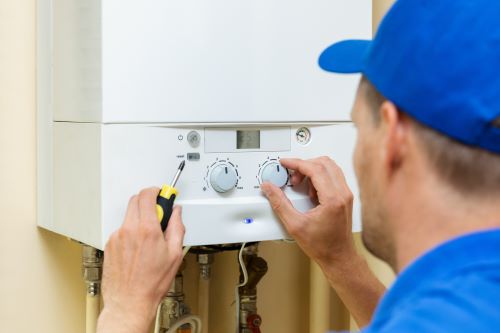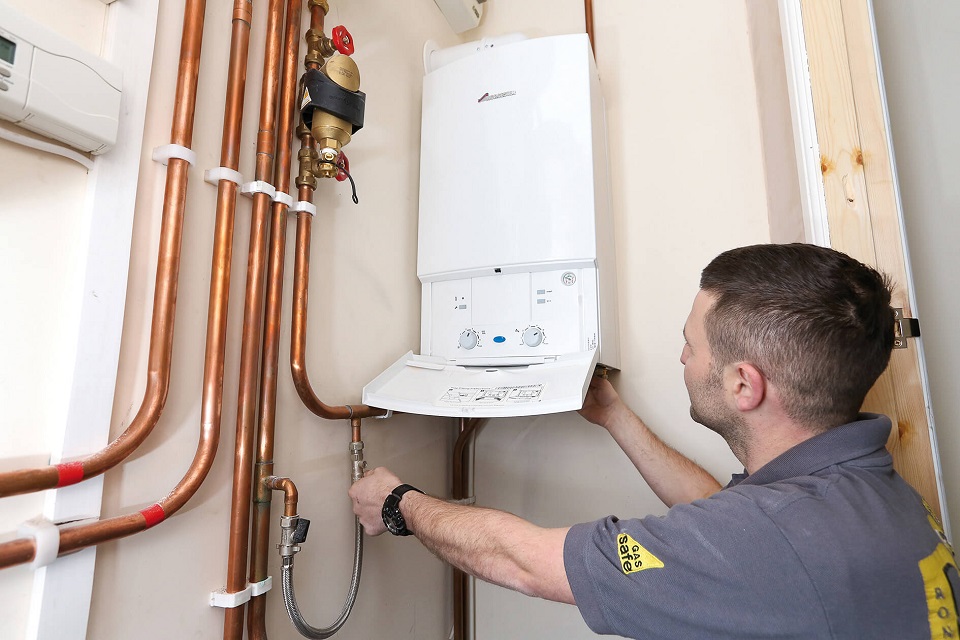Certain limitations do apply, please call for more details.
For Service Now, Call Us Right Now!
- HVAC Contractor
- HVAC Repair
- HVAC Installation
- Furnace Repair
- Furnace Installation
- Heat Pump Repair
- Heat Pump Installation
- Central Heating Repair
- Central Heating Installation
- Heating and Cooling Repair
- Heating and Cooling Installation
- Air Conditioner Repair
- Air Conditioning Installation
- Air Duct Cleaning Services
- Ductless Heating and AC Services
- Install AC
- Install Ducts and Vents
- Install Heating System
- Install Thermostat
- AC Maintenance
- Heating Maintenance
- HVAC Maintenance
- Repair AC
- Repair Ducts and Vents
- Repair Heating System
- Repair HVAC
- Repair Thermostat
- Clean Ducts and Vents
off



Choosing a Heating and Air Conditioning Installation Company
There are many factors to consider when choosing a heating and air conditioning installation company. The type of equipment, the location, and the quality of the service will all affect the price of the project. In general, a less expensive HVAC system will give you better performance, but the price will be reflected in the quality of the service. While you may want to try to save money, you should always call a professional. The best way to get a quote for your heating and air conditioning installation is to request free quotes from at least three different contractors.
If you can install the equipment yourself, you can cut costs by doing it yourself. However, the tools required to install a heating and air conditioning system are not generally accessible to the average homeowner. It is important to hire a licensed HVAC professional who is certified by NATE. The company's website should list its certified technicians and give you a quote for the installation. After receiving your estimates, you can hire the HVAC installation company that provides the best value for money.
If you can do the installation yourself, you can save even more money. Licensed HVAC professionals purchase their equipment at wholesale prices and pass the savings on to you. The process is easy and simple enough, but mistakes are common. When it comes to heating and air conditioning installation, hiring a professional is the best option. Besides, the training and certification required by HVAC installation professionals are extensive. Furthermore, they must also continue their education to keep up with changes in the field.
When choosing a heating and air conditioning installation company, it is vital to consider the type of HVAC system you'll be installing. A professional will be able to offer you a quote, as well as recommend a specific model. Additionally, a licensed technician will make sure to test every part of your existing heating and cooling system to ensure that it's compatible with your home. If you want to upgrade your heating and air conditioning systems, look for HVAC technicians who are NATE-certified. You can also learn more about HVAC systems by visiting a reputable manufacturer's website.
Before you hire a heating and air conditioning installation company, it's important to understand that the process of installing an HVAC system requires certain tools and skills. You should be able to read schematics and technical manuals before appointing a technician. You should ask if they have any tools that will be necessary for your HVAC installation. After determining what you need, the technician will begin the process of determining the type of HVAC system that will work best in your home.
In addition to residential and commercial structures, HVAC systems are important for large industrial buildings and office buildings. They regulate the indoor temperature and humidity in a building. This allows people to feel comfortable and work at their jobs. If you need an HVAC installation, you can contact an experienced HVAC technician to handle your project. They will evaluate the system and provide an estimate. If you're ready to take on the job, consider these steps. You'll be glad you did.
Heating and air conditioning installation will cost several thousand dollars. An HVAC technician will first inspect your home to determine the best system for your home. He will assess your current heating and cooling system to determine what will work best in your house. He will also give you a price estimate for your new unit. If you're unsure of the exact price, you can also consult with a trusted technician. It's important to hire an HVAC expert. If you're unsure of how to proceed, it's a good idea to take a few days to look around and compare prices.
Before heating and cooling installation, a technician will evaluate your home and provide an estimate for the cost of the job. He will check every aspect of your existing system, including its components and settings. He will also be able to give you a good idea of which system will be best for your home. If you're unsure, you can hire a technician for the job. If you're not comfortable with the price, a trained HVAC expert can save you a lot of money.
Key Benefits
Our approach has been simple. Provide a competitive price using qualified HVAC technicians with no hidden fees, backed by a 100% guarantee on workmanship. Our HVAC contractors are available now for any heating and cooling repairs or installation services for your home or business.
Professional Team
Factory Trained Technicians: We only employ factory trained technicians, they’re the best in the industry. Your work will be done right the first time.
Work done on Time
With over 25 years of experience in the industry, we boast all of the knowledge and expertise needed to handle even your most stubborn HVAC issues.
24/7 Emergency Service
We have technicians available for all heating and cooling jobs and we are available 24/7
Award Winning Firm
We are dedicated to the pursuit of excellence and the demonstration of high professional standards.
More Information
What is the Best Ductless Heating and Cooling System?
Before buying a new HVAC system, it is important to know what to look for in a high-quality system. Some ductless systems are more efficient than others, and you should look for an ENERGY STAR certified system. While it is often more expensive to buy an ENERGY STAR-certified system, you'll save money on energy bills over time. There are several benefits to choosing a system that is ENERGY STAR-certified. When shopping for a ductless HVAC system, consider the advantages and disadvantages of each type. The main benefit of ductless air conditioners is their low profile, quiet operation, and low energy consumption. You'll also save money on your monthly energy bill. These units are a smart choice if you want to reduce your carbon footprint, since they don't need ductwork to transfer heat and cool air. In addition to being more energy efficient, ductless air conditioners can also lower your carbon footprint. Up to 25% of the energy that you use in your home can be lost through ductwork, so a ducted system will help keep that energy inside. If you have a large home, a centralized air system is probably better for you. If your home is smaller, a ducted system is a good choice.
How Does Geothermal Heating and Cooling Work?
You're probably wondering how geothermal heating and cooling works. This type of system uses the earth's temperature to provide heating and cooling. The ground is around 45 degrees Fahrenheit (7 degrees Celsius) warm in winter and 75 degrees Fahrenheit (21 degrees Celsius) cold in summer. In both extremes, heat from the ground is transferred to the indoor space through a ground heat exchanger. This exchange allows the heat to be reabsorbed by the indoor unit. A geothermal heating and cooling system have several components in common. First, it uses a heat pump. Then, it transfers the heat from the ground to the building. In winter, this water is drawn from a nearby hot spring or aquifer. Then, in summer, the used water is discharged back into the same source. This system is effective for residential and commercial buildings, as it doesn't use fossil fuels to operate. The simplest form of geothermal heating and cooling is called an open-loop system. An open-ended pipe draws water from an underground aquifer, hot spring, or suitable water supply. It then passes through heat exchangers in a heat pump, transferring heat from the earth to the air. The water is then pumped out and the used up water is disposed of within the same source. The downside of an open-loop system is that it has few advantages.
What is Multistage Heating and Air Conditioning?
Multistage heating and air conditioning are a type of HVAC system that works like a ceiling fan with multiple speeds. The system can adjust the temperature of the air in your home to make it more comfortable. Compared to a standard system, multistage HVAC systems can save you a significant amount of money. You can save up to 30 percent on your energy bills by installing a multistage system. You can also expect to save on maintenance costs with multistage heating and cooling. Multistage heating and air conditioning systems are more efficient than single-stage systems. They operate at two different rates to provide the appropriate temperature for each season. This allows the system to kick into high gear when conditions are extreme. By maintaining the desired temperature, the system can use less energy. This is also important when using your home's HVAC system. It should be backed up with a backup heat pump or emergency heat to prevent your home from becoming too hot or too cold. A multistage heating and air conditioning system allow you to set the temperature in each room independently. Using this feature will make your system more energy efficient and save you money on energy bills. This type of HVAC system can run at 30 percent of its capacity at a time while still keeping the temperature in a consistent range. The multistage design of these units also makes them a better investment than a single-stage one.
What is Radiant Heating and Cooling?
The term "radiant" comes from the Italian word for hot and the word heating means cold. The term was coined by Frank Lloyd Wright, who buried copper pipes under the concrete floors of his Usonian homes to keep the floors warm. Levittown, New York followed suit. While the concept was revolutionary, homeowners soon found it difficult to maintain a consistent temperature. In the years since, however, the use of metal in hydronic heat tubing has declined dramatically. Now, plastic PEX tubing is the preferred hydronic heat tubing. Although the plastic PEX tubes have not been proven to be as durable as metal, they are widely used in Europe and the United States. This method of heating and cooling has become increasingly popular in recent years. While initially used in the luxury home market, it is now available for commercial projects, too. While the technology is not easy to install, its benefits outweigh its drawbacks. The first advantage of a radiant system is its low cost of operation. It does not involve the use of ducts, which adds to the costs of installation. Another benefit of using highly conductive panels is that they save ten to twenty percent on a monthly basis. Radiant cooling can be extremely efficient, which is particularly advantageous if the temperature is low in the summer. This technique is a great choice for offices, restaurants, and even schools. It has a higher efficiency rating than forced air systems and can lower operating costs by up to 25 percent. For a luxury home, it is important to choose a system that meets the requirements of the design. For example, a new-build apartment could have a dew point that is between 17 and 20 degrees Celsius or 63 to 68 degrees.
Where are your service locations?
Award winning work
Expert, guaranteed workmanship. Warranty on Parts & Labor
We are accountable to each other and the community we have sworn to serve. We are dedicated to the pursuit of excellence and the demonstration of high professional standards.


